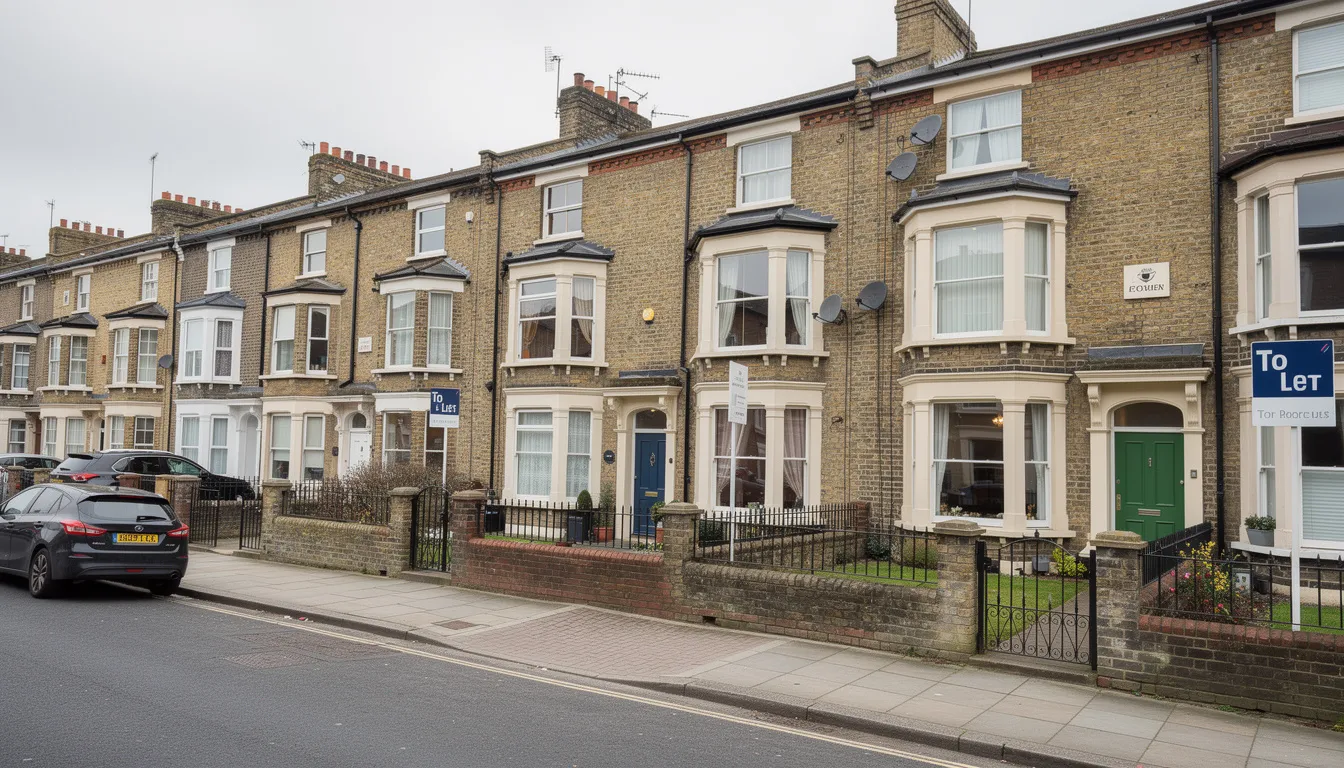
Why are millionaires leaving the UK? High taxes, economic uncertainty, and political instability are key factors pushing wealthy individuals to seek opportunities abroad. This article delves into these issues and reveals the top destinations attracting the UK’s affluent.
Key Takeaways
- High taxes, particularly on capital gains and income, are driving wealthy individuals to leave the UK for more favorable tax jurisdictions abroad.
- The phasing out of non-dom status has significantly reduced the UK’s appeal, compelling affluent residents to consider relocating to countries with better tax advantages.
- The exodus of millionaires is leading to decreased tax revenues for the UK, which could adversely affect public services and economic growth in the long term.
The Impact of High Taxes on Wealthy Individuals
High taxes in the UK have burdened wealthy individuals, influencing their financial decisions and motivating many to leave. The recent Budget introduced sweeping tax reforms, including changes to capital gains and inheritance taxes, intensifying this trend and leading to more tax rises.
Political upheaval and frequent leadership changes have compounded these issues, creating uncertainty. Rising taxes and a perceived unstable economic climate have led the UK’s affluent residents to explore options abroad.
Capital Gains Tax
Capital gains tax has become a focal point for the wealthy, as it directly impacts their investment strategies. Recent tax changes have increased the tax burden, deterring investments and prompting high net worth individuals to seek more favorable tax jurisdictions through the tax justice network.
As the tax rate rises from 20% to 24%, the appeal of investing in the UK diminishes, leading many to consider relocating to countries with more investor-friendly tax policies. This shift affects individual wealth and has broader implications for the UK’s economic growth and investment appeal.
Income Tax and Wealth Tax
The burden of income tax and wealth taxes in the UK has reached a tipping point for many high net worth individuals. Proposals to increase income tax rates for the wealthiest residents and tax rises drive these individuals to consider relocating to jurisdictions with lower tax burdens.
Rising taxes deters wealthy business owners and individuals alike, pushing them to seek environments where their financial planning is less constrained by tax obligations. This trend contributes to the broader wealth exodus from the UK, as individuals prioritise financial efficiency and stability over patriotic sentiments.
Inheritance Tax
Inheritance tax reforms have added complexity for wealthy individuals in the UK. The changes are expected to substantially increase the number of estates subject to taxation, prompting estate planners to reconsider their strategies to pay inheritance tax.
With the inheritance tax threshold frozen, more estates will be liable to pay tax, further motivating wealthy individuals to explore relocation options. These tax hikes make the UK less attractive for those looking to preserve their wealth for future generations, driving a significant portion of the affluent population to seek more favorable tax regimes abroad.
The End of Non-Dom Status
The phasing out of non-dom status has been a pivotal moment in the UK’s tax policy, significantly reducing its appeal to wealthy residents. Historically, non-dom status allowed wealthy individuals to pay UK tax only on their UK income, providing full exemption for their foreign income from UK taxation.
Recent reforms have begun to phase out this status, forcing individuals to pay taxes on their worldwide income. This change has prompted many affluent Europeans relocating to explore relocation options to more favorable tax jurisdictions, contributing to the new world wealth and the wealth exodus from the UK.
History of Non-Dom Status
The origins of non-dom status trace back to the Income Tax Act of 1799, which allowed individuals to avoid tax on foreign income. This designation was limited to those claiming domicile in another country starting in 1915. Over the years, non-dom status attracted wealthy individuals, allowing them to benefit from the UK’s financial stability without high taxes on their global earnings.
Recent reforms have significantly altered this landscape, making the UK less attractive to non-doms.
Recent Reforms
Recent reforms to the non-dom regime aim to level the playing field by taxing foreign earnings similarly to UK income. Non-doms residing in the UK for more than ten years are now subject to inheritance tax on their global estates.
Additionally, those who have resided in the UK for several years must pay a fee starting at £30,000 per year after seven years. These changes have significantly increased the number of estates liable to pay tax, from 4% to an expected 9.7% by 2029-2030.
Rising taxes and fees have driven many non-doms to reconsider their residency, contributing to the record exodus of wealthy individuals from the UK.
Financial Impact
The migration of wealthy individuals significantly impacts the UK’s economy. The departure of millionaires leads to decreased tax revenue, affecting public services and overall economic stability. Countries with favorable tax regimes, such as Portugal with its Non-Habitual Resident tax incentives, are becoming increasingly attractive to British millionaires.
This shift strains the UK’s economy and highlights the growing appeal of countries offering better financial opportunities and more investment appeal.
Popular Destinations for British Millionaires
As British millionaires seek more favorable tax environments, several destinations have emerged as popular choices. The United Arab Emirates (UAE) stands out due to its tax benefits and luxurious lifestyle.
Southern Europe, particularly Italy and Greece, offers a blend of culture, modern amenities, and favorable tax regimes in this European country. Switzerland, known for its stability and discreet banking services, is another top choice for the super-rich seeking a secure environment.
These destinations offer financial advantages and promise a high quality of life and political stability that affluent individuals seek.
United Arab Emirates (UAE)
The UAE is expected to welcome a record net inflow of 9,800 millionaires this year, reflecting its growing appeal to wealthy individuals. In 2024 alone, the UAE gained 6,700 new millionaires, highlighting its attractiveness as a destination for the affluent.
The minimum investment required for the UAE golden residence visa is AED 2 million (approximately $550,000), making it accessible for investors. Dubai, in particular, offers a luxurious lifestyle and a vibrant expat community, making it a prime destination for those seeking financial benefits and a high quality of life.
Southern Europe
Southern Europe, with its picturesque landscapes and rich cultural heritage, has become a magnet for affluent individuals. Italy’s regions, especially the Italian Riviera, attract wealthy people seeking a blend of culture and modern amenities.
In Greece, non-dom status requires a minimum investment of €500,000 in real estate, equity, or capital markets, making it appealing for investors. The combination of lifestyle benefits and favorable tax regimes makes Southern Europe highly attractive for the UK’s migrating millionaires.
Switzerland
Switzerland offers a unique blend of advantages for high-net-worth individuals:
- Favorable tax rates
- Discreet banking services
- A stable economic environment
- Low inflation and a strong currency, providing a secure and profitable environment for investments
- A reputation for privacy and asset security, appealing to millionaires who prioritise discretion
These advantages make Switzerland an ideal location for those seeking a stable and secure place to grow their wealth.
Economic and Social Factors Driving Migration
The migration of millionaires from the UK is driven by a combination of economic and social factors. The elimination of non-dom status, rising borrowing costs, and sluggish economic growth have deterred wealthy individuals from considering the UK as their residence.
Since 2016, the UK has transformed from a haven for the rich to a launchpad for their departure, with many evaluating other countries’ quality of life against the rising tax burdens. As record numbers of millionaires are leaving the UK, the country’s economic competitiveness is increasingly at risk.
Economic Competitiveness
The UK’s economic competitiveness is challenged by the declining number of resident millionaires:
- Since 2014, the number of resident millionaires in the UK has dropped by 9%.
- In 2024 alone, 10,800 millionaires were reported to have left the country.
- By 2028, the UK could lose 20% of its wealthy residents.
This decline poses significant challenges to the UK’s economic growth and overall competitiveness on the global stage.
Quality of Life
Quality of life issues, such as the rising cost of living and inflation, significantly impact wealthy individuals’ decisions to migrate. Surveys indicate that many millionaires support increased taxation on the wealthy to benefit public services. However, the anticipated reduction in millionaire taxpayers could significantly constrain funding for essential services such as healthcare and education.
The loss of tax revenue from departing millionaires is comparable to the contributions of over half a million average taxpayers, highlighting the substantial impact on public services.
Political Stability
Political stability is crucial for wealthy individuals when determining their residency. Rising crime rates and safety concerns in cities like London have driven affluent individuals to reconsider their residency. Relocating due to safety concerns indicates a broader challenge to political stability in areas with high crime.
Uncertainty and financial risks associated with political instability can significantly influence the decisions of high net worth individuals, leading them to seek more stable environments abroad.
Long-Term Implications for the UK
The long-term implications of millionaire migration are profound for the UK:
- The abolition of non-dom status is expected to increase tax revenue significantly, but the overall impact may be mixed.
- The UK is projected to experience the highest net outflow of millionaires on record in 2024.
- Estimates suggest a decline in the number of millionaires from approximately 3.06 million to around 2.54 million by 2028.
This significant loss of wealthy residents could have far-reaching consequences for the UK’s economic stability and public services.
Negative Millionaire Growth
The UK is projected to see a net outflow of 7,800 UK millionaires leaving the UK, more millionaires than double the anticipated outflow from China. Since 2014, the number of resident millionaires in the UK has dropped by 9%. The number of estates liable to pay tax is expected to more than double, further compounding the issue of negative millionaire growth and world wealth millionaire outflows.
This trend poses significant challenges to the UK’s economic growth and highlights the need for measures to retain wealthy individuals.
Impact on Public Services
The loss of tax revenue from departing millionaires significantly affects public services in the UK. A majority of wealthy individuals express a sense of duty to contribute to society through taxes, yet their departure constrains funding for essential services.
The anticipated reduction in millionaire taxpayers could lead to significant cuts in funding for healthcare, education, and other public services, impacting the overall quality of life for UK residents.
Measures to Retain Wealth
To mitigate the wealth exodus, the UK must consider implementing measures to retain its wealthy residents. Enhancing the appeal for high net worth individuals through tax reforms could be a crucial step. Suggestions include introducing a politically-palatable ‘UK investor visa’ that could entice wealthy individuals back into the country.
With capital gains tax rates set to rise, proactive measures are essential to prevent further outflows and maintain economic stability and growth. Retaining wealthy individuals is vital for the UK’s economic health and the funding of public services.
Is It Worth Staying in the UK?
The decision to stay in the UK is complex for wealthy individuals, who must weigh the benefits of financial stability against a high tax burden. High property costs and unfavorable policies, particularly in London, are significant deterrents. However, the perceived stability of the UK government compared to other countries, like the US, remains a compelling argument for staying.
This section will delve into these pros and cons to provide a balanced perspective.
Stability and Investment Opportunities
Despite high taxes, the UK still presents perceived stability for investment opportunities, particularly in London’s well-established property market. London’s property market is known as a safe haven for wealthy individuals, offering a stable and attractive environment for investment, including services from Lloyds Bank commercial banking.
The country’s overall stability lie and financial predictability continue to appeal to those weighing their options against more investor-friendly hubs abroad, as it is the only country that offers such advantages.
Patriotic Millionaires
Some wealthy individuals choose to remain in the UK, driven by a sense of national loyalty and a commitment to contributing to the local economy. These patriotic millionaires view paying higher taxes as a duty, despite the financial burden. Their decision to stay underscores a belief in supporting the country’s public services and economic health, even amid rising tax obligations.
Summary
In summary, the exodus of millionaires from the UK is driven by high taxes, the end of non-dom status, and the allure of more favorable opportunities abroad. The impact of capital gains tax, income tax, and inheritance tax reforms are pushing wealthy individuals to consider relocation. Popular destinations like the UAE, Southern Europe, and Switzerland offer attractive tax regimes and high quality of life, drawing the UK’s affluent residents.
This trend has significant long-term implications for the UK, including negative millionaire growth and reduced funding for public services. The UK must consider measures to retain its wealthy residents, such as tax reforms and investor-friendly policies. Despite the challenges, some wealthy individuals choose to stay out of a sense of loyalty and belief in the UK’s stability. The future of the UK’s economic health depends on balancing these factors to maintain its competitive edge and support its public services.
Frequently Asked Questions
Why are wealthy individuals leaving the UK?
Wealthy individuals are departing the UK primarily due to high tax rates and the termination of non-domiciled status, which has diminished the attractiveness of the tax landscape.
How many millionaires are projected to leave the UK?
The UK is projected to experience a net outflow of 7,800 millionaires, significantly surpassing the anticipated exodus from China.
What is one reason for the surge in wealthy individuals leaving the UK?
The surge in wealthy individuals leaving the UK is partly due to recent tax reforms, specifically changes to capital gains tax and inheritance tax. This environment prompts high-net-worth individuals to seek more favorable financial jurisdictions.
What are the requirements for obtaining a golden residence visa in the UAE?
To obtain a golden residence visa in the UAE, you must invest in property valued at a minimum of AED 2 million or secure a loan from designated local banks. This investment is essential for eligibility.
What is one argument for wealthy individuals to remain in the UK?
Wealthy individuals may find it advantageous to remain in the UK due to its perceived governmental predictability and stability, which can foster a secure environment for investments and long-term planning. This stability can be crucial for maintaining and growing their wealth.



